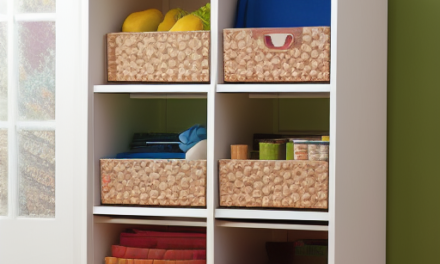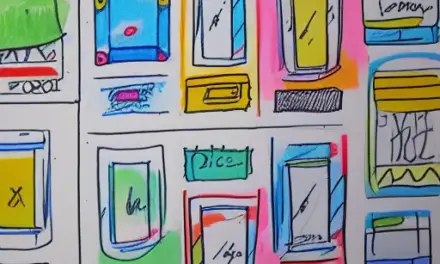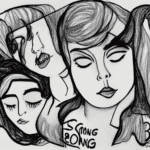A golden retriever puppy can have some common behavioral issues. Some of these issues include chewing, digging, jumping over fences, eating poop, tunnel vision, and more. If you’re experiencing any of these issues, you may want to seek a veterinary opinion. These behaviors are common in golden retrievers, but you can prevent them with proper training.
Disruptive behavior
The first step in dealing with destructive behavior in a golden retriever puppy is to identify the underlying cause of the behavior. First, rule out any illness or injury. Then, check whether your dog is afraid of anything. As dogs are highly social animals, spending time with your puppy can help prevent the behavior from occurring. Daily walks can be a great way to spend time with your golden retriever puppy.
Golden retrievers have high levels of energy and will often demand attention. This high-energy breed can be intimidating, especially to those who are not used to being around large dogs. Their wagging tails, jumping, and stealing things from tables can all be distracting. These behaviors make them not suitable for an indoor pet.
Another common problem with golden retriever puppies is chewing items. These dogs can destroy furniture, shoes, and even stuffed toys. However, chewing should be stopped at an early age. Providing chew toys is a good solution to this problem, as they can distract golden retriever puppies from their destructive behavior.
Disruptive behavior in golden retriever puppies may be a result of their inherent temperament. These dogs can be aggressive and possessive when they feel confined to a certain place. This behavior may be frustrating for children who want to play with their toys. In addition, golden retrievers demonstrate different attachment levels to different items. Some will tolerate a child pet while chewing on a bumper, while others may reject a bone or toy completely.
Jumping over fences
There are a variety of reasons that a golden retriever puppy might want to jump over a fence. First of all, the dog may be bored. A dog can only be interested in his own yard for so long, and if he is left outside, he is likely looking for interesting smells and perhaps a mate.
Golden retrievers are big dogs and can jump four to six feet high. This can be a problem, because they can jump up on people’s chests or knock them over. However, with proper training, goldens can jump safely. Goldens usually jump four to six feet high, and with a long run-up distance of about 10 feet, they can jump even higher. However, some goldens may be able to jump six feet high without any run-up distance.
Keeping dogs on a leash is essential to prevent them from jumping over fences. Even if your dog doesn’t understand that the fence is made of wires, they will try to get over it anyway. This can cause injuries to their paws and stomach.
Identifying the causes of your golden’s fence jumping is essential to stopping the behavior. Make sure all of your dog’s needs are being met, including exercise. By going for walks daily, you can introduce your dog to new environments, scents, and social companionship.
Eating poop
Golden retriever puppies sometimes throw up after eating poop, but it doesn’t necessarily mean they’re sick. It may simply be an attempt to get your attention or a treat. To remedy this behavior, redirect your golden’s attention and reward it when it performs a good behavior.
The first step in overcoming this behavior is to understand why your golden is eating poop. Some dogs eat feces because they are anxious or want to copy what other dogs do. If you think your dog is eating poop because it’s a treat, try removing the source of the food.
Another potential cause of eating poop is boredom. Lack of exercise, pent-up energy, or anxiety may all contribute to this behavior. Lack of toys can also contribute to this problem. If you’re unsure as to why your dog is eating poop, consider having him tested for gut microbiome imbalance.
Poop eating is natural for young puppies. The habit may also have developed from the mothers’ instinct to keep their den clean. While most puppies outgrow this habit, some may hold on to it throughout their lifetime. In such cases, you can reward your dog by playing with him or chasing him. Another reason your puppy may be eating poop is because it is bored.
Eating poop may be a temporary solution, but it can have long-term consequences for your dog’s health. Poop eating can lead to nutritional deficiencies, as it doesn’t provide all the necessary nutrients that your dog needs. Also, it can lead to parasites and viruses. To correct this problem, you should provide your pet with a better diet.
Tunnel vision
While golden retriever puppies may not exhibit any symptoms of tunnel vision problems, they should be examined by a veterinarian to rule out any serious eye problems. Although it is not a very common problem, more than two billion people worldwide suffer from vision problems. If you have concerns about your golden retriever’s eyesight, you should consider taking your pet to a veterinary ophthalmologist for treatment.
This condition is not usually painful in dogs and usually heals on its own within a week or two, but it’s best to keep an eye on it. Without proper care, it can worsen and require surgical intervention. A vet can give your puppy steroid eye drops or apply a topical medication to treat the problem.
Early signs of GRPU include low intraocular pressures (IOPs) that are typically within the range of 10-20 mmHg. These dogs are at risk for GRPU and should be screened twice a year. The symptoms can also include mild redness or irritation that lasts for a long time.
Treatment for GRPU varies based on the stage of the disease and the severity. If the disease is detected early, treatment can save the dog’s vision and prevent the condition from getting worse.
Aggression
Golden retrievers are not naturally aggressive, but if they are being treated improperly, they can become assertive, possessive, or even fearful. In order to avoid this problem, adopting a puppy from a reputable breeder and ensuring proper socialization are essential.
Most golden retrievers are docile and get along with other pets. However, some dogs may show aggressive behavior when they are in pain. When this happens, it is important to understand the triggers that cause the attack. For example, a golden might growl and bite if it perceives someone is trying to take away its food.
Some older dogs may also exhibit aggressive behavior when they see a new puppy. This is normal as they are trying to establish a pecking order. If you don’t intervene early, the situation may escalate into bigger fights. For this reason, it is important to socialize your puppy as early as possible.
To prevent aggressive behavior, prevent rough play with your puppy. While this may seem like a natural behavior, it should not be encouraged. Excessive rough play can teach your puppy that biting is a normal response to play. This can lead to antisocial habits. Moreover, it is not acceptable to beat your dog or hit him in order to make him feel good.
Some dogs develop aggressive behaviors due to separation anxiety. They can be overly jealous or fearful of other dogs, but this is only a temporary problem. It will go away once the cause is dealt with. You should visit a veterinarian if you suspect your puppy is having an aggression problem.
Separation anxiety
There are several ways to deal with problems with separation anxiety in golden retriever puppies. It is important to understand that these dogs often show signs of stress and destructive behavior when you’re away. These behaviors can include excessive barking, whining, pacing, chewing, digging, and peeing.
Ideally, your golden retriever puppy should spend more time with you, rather than by himself. Golden retrievers are very social animals and like human company. They will want to stay close to you all day, and sleep next to you at night. But when you leave them for an extended period of time, they will experience different levels of anxiety. They will be left wondering why they are being left and if you’re going to come back. It can be very frustrating for your golden to feel alone, and punishment can only make the problem worse.
While you should never leave a puppy alone, you should be aware of the signs of separation anxiety and what can be done to prevent them. For example, if the dog does urinate in unexpected places such as the kitchen sink or bathroom, it is likely a sign of separation anxiety. You should also keep an eye on coprophagia, a behavior that indicates distress.
Another way to deal with separation anxiety is to let your golden retriever spend time outside. When your puppy is out for long periods of time, you can give it a treat for calmness. You should gradually increase the amount of time your dog spends outside.









